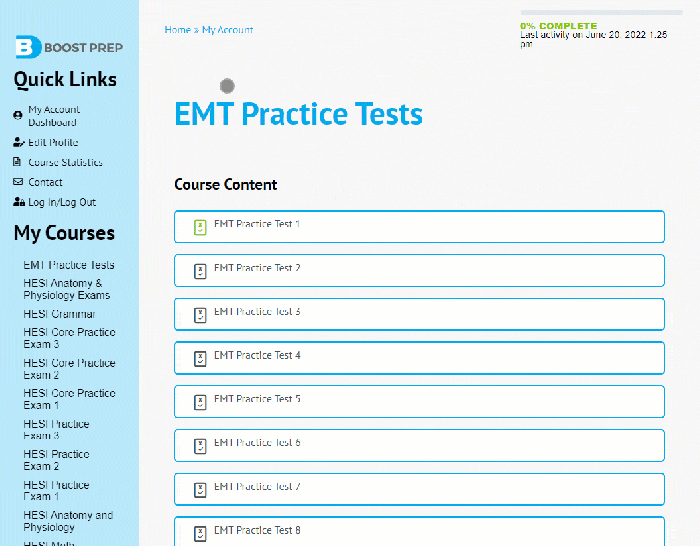Prepare for success on your EMT final exam with emt final exam 200 questions fisdap. This comprehensive guide will equip you with the knowledge and strategies you need to excel in the exam and demonstrate your proficiency as an Emergency Medical Technician.
Our expert insights and proven techniques will empower you to tackle the 200 questions with confidence and emerge as a highly skilled EMT professional.
Our meticulously crafted study guide provides an in-depth overview of the exam structure, content areas, and essential skills. We will guide you through effective study methods, including active recall, spaced repetition, and concept mapping, to optimize your learning and retention.
Additionally, we will delve into the significance of FISDAP as a study resource and demonstrate how it aligns with the exam objectives.
EMT Final Exam Overview
The EMT final exam is a comprehensive assessment designed to evaluate the knowledge and skills acquired by EMT students throughout their training program. Passing this exam is a crucial step towards obtaining EMT certification and practicing as an emergency medical technician.
The exam consists of approximately 200 multiple-choice questions that must be completed within a specific time limit. The questions cover a wide range of topics related to emergency medical services, including patient assessment, trauma management, medical emergencies, and operational procedures.
FISDAP Study Guide, Emt final exam 200 questions fisdap
FISDAP (First Responder Initial Scene Management, Assessment, and Patient Care) is an invaluable study guide for EMT final exam preparation. It aligns closely with the exam content and objectives, providing a structured approach to reviewing essential concepts. FISDAP covers key topics such as scene safety, patient assessment, medical emergencies, and trauma management.
By utilizing FISDAP effectively, students can identify areas where they need additional support and focus their studies accordingly.
Exam Preparation Strategies
Effective exam preparation requires a combination of active learning techniques and strategic planning. Active recall involves actively retrieving information from memory, such as through practice questions or flashcards. Spaced repetition involves reviewing material at increasing intervals to strengthen memory retention.
Concept mapping can help visualize and connect different concepts, improving overall understanding. Additionally, practice tests and mock exams provide valuable insights into exam structure, question types, and areas for improvement.
Test-Taking Tips

Managing time effectively during the exam is crucial. Read questions carefully and identify s to understand the main concept being tested. Use the process of elimination to narrow down answer choices. Stay calm and focused throughout the exam, and don’t be afraid to skip difficult questions and return to them later.
Sample Questions and Answers
| Question | Correct Answer | Explanation |
|---|---|---|
| What is the primary survey’s first step? | Scene safety | Ensuring scene safety is paramount before approaching the patient. |
| Which type of shock is caused by excessive fluid loss? | Hypovolemic shock | Hypovolemic shock occurs when the body loses a significant amount of fluid, such as from bleeding or dehydration. |
| What is the recommended compression rate for adult CPR? | 100-120 per minute | Maintaining a consistent compression rate is crucial for effective CPR. |
Exam Day Logistics: Emt Final Exam 200 Questions Fisdap
Arrive at the exam location well-rested and having eaten a nutritious breakfast. Bring necessary materials such as pencils, erasers, and any permitted study aids. Follow all exam conduct rules and regulations. It is essential to manage stress and anxiety by practicing relaxation techniques and maintaining a positive mindset.
Question Bank
What is the significance of the EMT final exam?
The EMT final exam is a crucial milestone in your journey to becoming a certified Emergency Medical Technician. It evaluates your knowledge, skills, and ability to apply them in real-world emergency situations.
How can I effectively utilize FISDAP to prepare for the exam?
FISDAP (First Responder Initial Scene Management and Patient Assessment) is an invaluable study resource that aligns with the exam content. By thoroughly reviewing FISDAP materials, you can reinforce your understanding of key concepts and practice applying them to various scenarios.
What are some practical study techniques to enhance my preparation?
Active recall, spaced repetition, and concept mapping are effective study techniques that can improve your retention and recall of information. Active recall involves actively retrieving information from memory, while spaced repetition involves reviewing material at increasing intervals to strengthen memory.